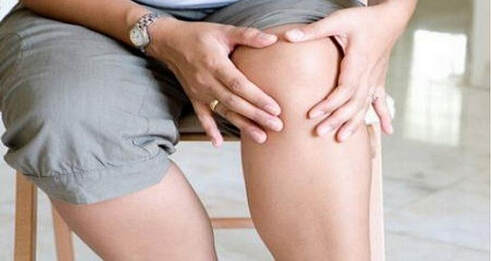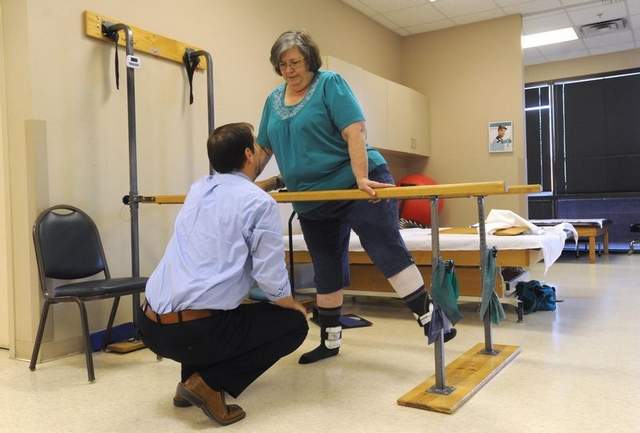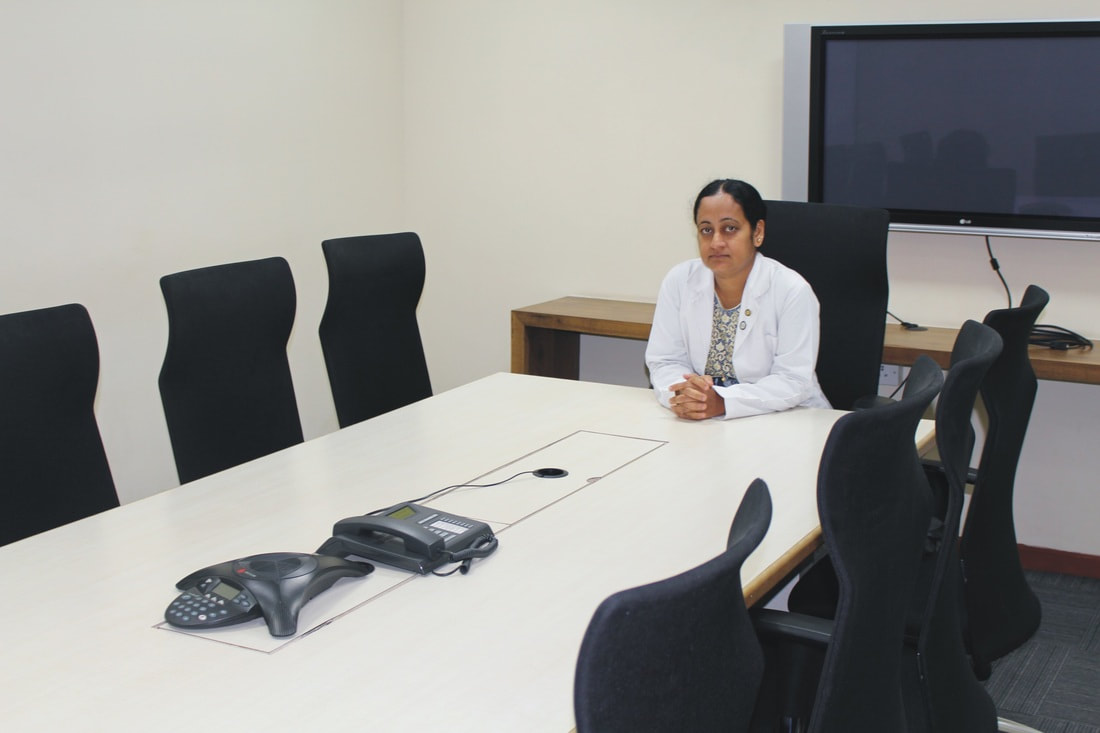 Think Beyond Symptom Management Think Beyond Symptom Management Age doesn’t seem to be a bar these days for health conditions and problems to hit a person. Advancements in science and technology may have improved our longevity but the quality of our lives are getting worse day by day-heart attacks hit individuals in mid-30s, diabetes loves young children, blood pressure has taken center seat in young adults and knee problems have ruined the quality of life of millions of people. Osteoarthritis Osteoarthritis (OA) is the most common chronic condition of the joints establishing itself as a rapidly growing cause of disability in the world. Though both the sexes are at a risk, the number of cases of osteoarthritis in women is almost double that of the male sex. It can affect anyone of any age group but its mostly people above the age of 65 who face the wraths of it. It’s been projected that more than 130 million people will suffer from OA by 2050. The knee is primarily the largest joint that’s affected by the disease whose major risk factors include obesity, age, joint injury, joint overuse, weak thigh muscles and genes. Statistics show that at least one in every 12 individuals above the age of 60 have hand OA & one in every second person will develop OA during his/her life. Obesity is a modifiable risk factor for OA and research even tells that obesity, diabetes and metabolic syndrome (MetS) directly influence the development of the condition. Haven’t we also heard our physician instantly recommending us to lose weight when we complain about knee pain? Weight plays a definite role in knee pain as our entire body weight is imposed on the knee for support and this causes rapid wear and tear of the body part. Presently, there are no varied treatment options available for OA and pain is confined mostly with symptom management or in worse cases, using total joint replacement when the joint is damaged beyond repair. Reputed arthritis societies and organizations recommend practicing regular physical activity and healthy diet to lose weight in obese/overweight patients as a combat measure against OA but what are the provisions set up in clinical settings for such treatments? Treating OA in Obese Patients through Diet & Exercise in Clinical Settings Obesity can both cause and worsen OA but the good thing is that it can be modified and controlled. We do have research material showing that weight reduction is a great strategic treatment option for OA. Understanding the condition and realizing that exercise intervention can help to reduce pain thereby enabling better mobility is also clearly proved through various studies. A study brought in 181 patients whose BMI was above 30 and suffered from severe knee osteoarthritis. Only 112 candidates (others quit due to health reasons and inability to attend sessions regularly) completed the program and their average age was around 57 years. The program was for a duration of 4 months during which 2 exercises and one dietary intervention sessions were organized every week. Each of the patient’s weight was measured and they were categorized based on their weight, age and initial OKS score. Oxford knee score (OKS), 30 second sit to stand (30s s-s), 6 minute walk test (6MWT) and EQ5Dquality of life were assessed during the study period. Patients with weight ranges between 100 and 110 and OKS score between 10 and 20 benefitted the most out of the program but it was seen that all the 112 participants who successfully completed the study displayed significant improvements in their physical abilities. This clearly shows that when the condition is tackled in obese people with diet and exercise interventions by professionals there are great opportunities for better treatment. Various studies have established the strong connection between obesity and knee arthritis. They show that people with a BMI greater than 30 are at a 5-time risk of knee OA. In adults above the age of 60, mean knee strength in obese males is 65% of body weight compared to 77% for controls while it is 50% of body weight for obese females compared to 62% for non-obese females. Muscle weakness is predominant among older adults and is a common reason for fall. Death due to such falls are also high in number. Various studies linking diet interventions in obese patients with knee OA have come to successful conclusions: A pilot study achieved 9% weight loss over 6 months in obese older adults with knee OA with the help of a partial meal-replacement plan and behavioral strategies; another study used an intensive low-energy diet to achieve 11% weight loss in 8 weeks. When obese patients lose weight there is an active reduction in the disability level and losing around 10% of the body weight results in greater potential advantages. Findings of various trials and meta-analyses of weight reduction strategies in obese/overweight individual are tabulated below:
A reduction in body weight affects OA by reducing the load on the knee. By combining calorie restrictions with calorie distribution (45-60% from carbs, 15-20% from proteins and <30% from fats) we attain greater benefits. Studies show that pain, physical function and walking distance improve by 26%, 31% and 15% with aerobic walking exercise. Patients feel that it is their doctor’s responsibility to guide them towards weight loss if needed. A recent study shows that only 42% obese individuals who visited their GP over a 1-year period were advised to lose weight. Only a very small percentage of physicians take the pain to write down a prescription for physical activity promotion programs (15%). But when their intervention is involved in obese patients with knee OA results are surely positive.
Diet & Exercise-Related Interventions Meta-analyses shows that a combination of strengthening, flexibility and aerobic exercise are likelier to improve function and reduce pain. Many studies promote a majority of these dietary interventions for maximized benefits:
References Exercise professional led physical activity and diet in obese individuals with knee osteoarthritis: https://journals.lww.com/acsm-essr/Pages/viewallmostpopulararticles.aspx Diet & exercise for obese adults with knee osteoarthritis: https://www.ncbi.nlm.nih.gov/pmc/articles/PMC3444812/ Role of diet & nutrition in treating osteoarthritis: https://academic.oup.com/rheumatology/article/57/suppl_4/iv61/4975692 Update on the treatment of osteoarthritis in obese patients: https://www.tandfonline.com/doi/full/10.1517/14656566.2016.1165208 Comments are closed.
|
AVOID FRAUD. EAT SMART+91 7846 800 800
|
- Home
- Written Testimonials
- Consult
- Clinics
- Blogs
-
Diet & Nutrition
- Diabetes Reversal
- IVF IUI not needed for PCOS PCOD Infertility
-
Medical Nutrition
>
-
Disease & Conditions
>
- Infertility | PCOS
- Diabetes Mellitus
- Cholesterol
- Hypothyroid
- Kidney Problems
- Hypertension
- Cardiovascular Diseases
- Liver Diseases
- Gastro intestinal disorder
- Cancer
- Metabolic Disorders
- Orthopedic Disorders
- Eating Disorders
- Dietary Recall
- Weight Record Filled By Clients
- Online Payment Transaction Details
- Online Clients Weight Check Form
- Our Program Package Service Charges
- Weight Record 2017 Clients
- Measurements sent by Clients
- Terms & Conditions Of Payment
- Thanks. Your Form is Submitted
- Video Testimonials
- Lifestyle & Wellness
- Lifestyle & Wellness Blog
- Allergy & Intolerance
- Weight Loss / Gain
- Weight Loss / Slimming Blog
-
Disease & Conditions
>
- Life Cycle Nutrition >
- Sports Nutrition >
- Integrity in Nutrition
- Knowledge Centre
© COPYRIGHT 2022. ALL RIGHTS RESERVED. FRST HEALTHCARE PVT LTD.
Dr. Nafeesa Imteyaz of First Eat Right clinic, is the Best Dietitian Nutritionist in Bangalore. Best Dietitian Nutritionist in Pune. Best Dietitian Nutritionist in Hyderabad. Best Dietitian Nutritionist in Chennai. Best Dietitian Nutritionist in Mumbai. Best Dietitian Nutritionist in Delhi. Best Dietitian Nutritionist in Kolkata.



